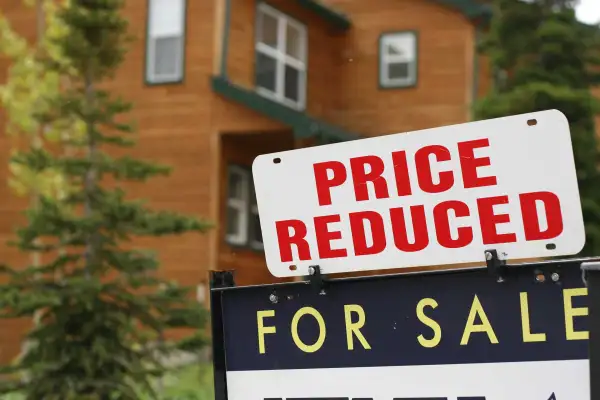4 Ways the Housing Market Is 'Wildly Different' From Just a Few Months Ago

A lot can change in just a few months, and the housing market is no exception. After two years of intense competition spurred by ballooning demand, rock-bottom mortgage rates and soaring home prices, things are finally starting to return to a pre-pandemic version of normal.
"There's no doubt that the housing market has receded,” Ali Wolf, Chief Economist at housing market research firm Zonda, told CNBC this week, noting that the firm’s data is back to levels last seen in 2018 and 2019. “That’s dramatically slower,” Wolf said, “but that also captures a healthy and more sustainable pace of home sales.”
Most of the changes outlined below can be traced back, at least in part, to the fact that buying a home is becoming less and less affordable. Rising mortgage rates and two years of abnormal home price growth mean that buying a house is simply no longer possible for many. Add in the threat of a recession and persistently high inflation, and you have a recipe for a serious slowdown in demand.
Here are four signs that show how the housing market’s red-hot run is coming to an end — if it's not over already.
New home construction slowed down.
The pace of new home construction has been steadily slowing for months as the surging demand of the early days of the pandemic tapers off. Single family housing starts (a measure of new home construction) fell 9.6% in July, according to new data from the National Association of Homebuilders (NAHB). That’s the slowest pace since June 2020 and the fifth straight month of declines.
At the same time, the NAHB’s builder confidence index fell for the eight month in a row in August to its lowest level since early 2020. Pantheon Macroeconomics Chief Economist Ian Shepherdson summed up the data like this: “Grim, and probably not the floor.”
That means homebuilding will likely slow down even further before picking up the pace again.
More homebuyers are backing out of deals.
According to data released this week by real estate brokerage Redfin, homebuyers backed out of 63,000 home purchase contracts in July. That’s 16% of all home sales that went under contract and the highest portion of sale cancellations in two years.
Buyers back out of home sales for all kinds of reasons, but the fact that a growing portion of people are doing so points to two trends: Some buyers know they have options and feel confident they’ll be able to find another house, and others are getting cold feet or are being squeezed out of purchases as mortgage rates rise.
There are more homes for sale.
As buyer demand falls, the persistent shortage of homes that has shaped the market over the last two years is beginning to ease up. “The inventory of homes-for-sale increased solidly in July, moving near levels not seen since mid-2020,” Realtor.com Manager of Economic Research George Ratiu said in a market update last week.
There were 30% more active listings on a typical day in July than there were a year ago, according to Realtor.com’s data.
“With more available properties and less competition, sellers are beginning to adjust to the new reality by cutting prices to incentivize buyers,” Ratiu added.
Bidding wars and competition are fading.
The days of the out-of-control bidding war may finally be behind us.
According to data from Redfin, the portion of home offers written by its agents that faced a bidding war (defined as at least one competing offer) fell for the sixth straight month in July. Just 44% of offers encountered competition that month, compared with nearly 64% at the same time last year.
“The market is wildly different than it was a few months ago. Buyers are competing with one to two other offers instead of four to eight,” Alexis Malin, a Redfin agent based in Jacksonville, Florida, said in a news release. “Some aren’t facing competition at all.”
More from Money:
Why a Recession Could Help Homebuyers — Plus 5 Tips for Buying During a Downturn
10 Cities Where Home Prices Are Rising the Most
10 Cities Where Rich Out-of-Towners Have Driven up Home Prices
